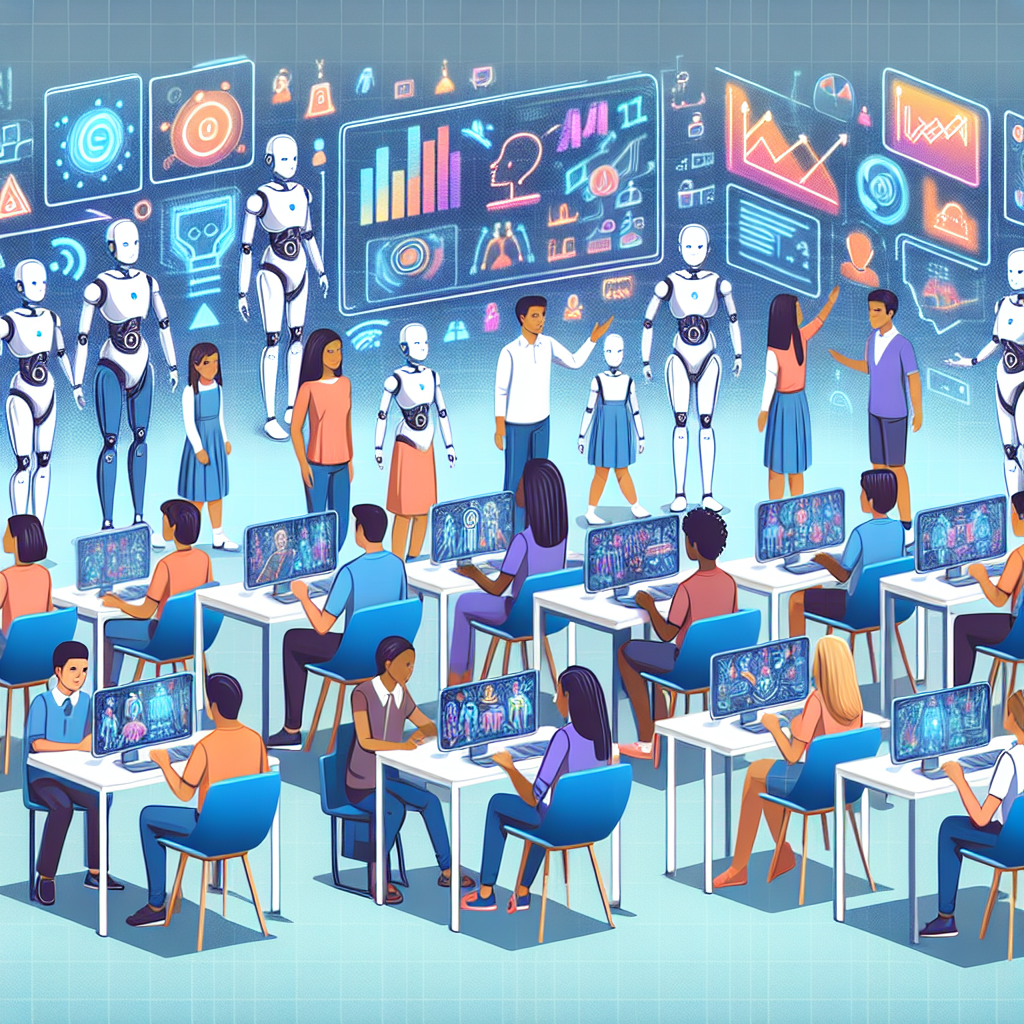Introduction
Artificial Intelligence (AI) has rapidly made its way into various industries, revolutionizing the way tasks are performed and optimizing efficiency. In the field of education, AI platforms are being increasingly utilized to enhance learning experiences, personalize education, and provide valuable insights to educators. The potential of AI in education is vast, and its impact on the sector is only expected to grow in the coming years.
Benefits of AI Platforms in Education
1. Personalized Learning: One of the key benefits of AI platforms in education is the ability to personalize learning experiences for students. AI algorithms can analyze student data and behavior to identify individual learning preferences and strengths, allowing educators to tailor instruction to meet the unique needs of each student. This can lead to improved academic performance, increased engagement, and better retention rates.
2. Enhanced Teaching and Assessment: AI platforms can assist educators in creating more effective teaching materials and assessments. AI algorithms can analyze student performance data to identify areas of weakness and provide targeted feedback to help students improve. Additionally, AI-powered assessment tools can help educators quickly and accurately evaluate student work, saving time and allowing for more efficient grading.
3. Data-Driven Insights: AI platforms can collect and analyze large amounts of data to provide valuable insights to educators and administrators. By analyzing student performance data, attendance records, and other metrics, AI platforms can help educators identify trends, track progress, and make data-driven decisions to improve educational outcomes.
4. Virtual Assistants and Tutoring: AI-powered virtual assistants and tutoring systems can provide students with personalized support outside of the classroom. These systems can answer questions, provide explanations, and offer additional practice exercises to help students master difficult concepts. Virtual tutors can also adapt to each student’s learning style and pace, providing individualized support to help students succeed.
Challenges and Limitations
While the potential of AI platforms in education is vast, there are also challenges and limitations that need to be addressed. Some of the key challenges include:
1. Privacy and Security Concerns: AI platforms in education often require access to sensitive student data, raising concerns about privacy and security. Educators and administrators need to ensure that student data is protected and that AI platforms comply with relevant privacy laws and regulations.
2. Bias and Fairness: AI algorithms can inadvertently perpetuate bias and discrimination if not properly designed and monitored. Educators and developers need to be mindful of bias in AI systems and take steps to mitigate its impact on educational outcomes.
3. Cost and Accessibility: Implementing AI platforms in education can be costly, especially for schools with limited resources. Additionally, not all students may have equal access to AI technologies, creating disparities in educational opportunities.
4. Ethical Considerations: AI platforms in education raise ethical questions around issues such as data privacy, algorithm transparency, and the ethical use of AI in student assessments. Educators and policymakers need to consider these ethical implications when implementing AI technologies in education.
FAQs
1. How can AI platforms help students with special needs?
AI platforms can be tailored to meet the unique needs of students with special needs by providing personalized learning experiences, adaptive support, and targeted interventions. For example, AI-powered assistive technologies can help students with disabilities access learning materials, communicate effectively, and participate in classroom activities.
2. Can AI platforms replace human teachers?
While AI platforms can enhance teaching and learning experiences, they cannot replace human teachers. Educators play a crucial role in providing emotional support, fostering critical thinking skills, and promoting social and emotional development in students. AI technologies can augment teachers’ capabilities and support their work, but human teachers remain essential in the education process.
3. How can educators integrate AI platforms into their teaching practices?
Educators can integrate AI platforms into their teaching practices by using AI-powered tools for lesson planning, assessment, student engagement, and personalized learning. Educators can also collaborate with AI developers to co-design educational technologies that meet their specific pedagogical needs and goals.
4. What are some examples of AI platforms in education?
Some examples of AI platforms in education include adaptive learning systems, virtual tutors, automated grading tools, and intelligent tutoring systems. These platforms leverage AI algorithms to provide personalized support, analyze student data, and enhance teaching and learning experiences.
Conclusion
The potential of AI platforms in education is vast, offering opportunities to personalize learning, enhance teaching and assessment, provide valuable insights, and support students with special needs. While there are challenges and limitations to be addressed, the benefits of AI in education are clear. Educators, policymakers, and developers need to work together to harness the power of AI technologies to improve educational outcomes and provide all students with access to quality education.

